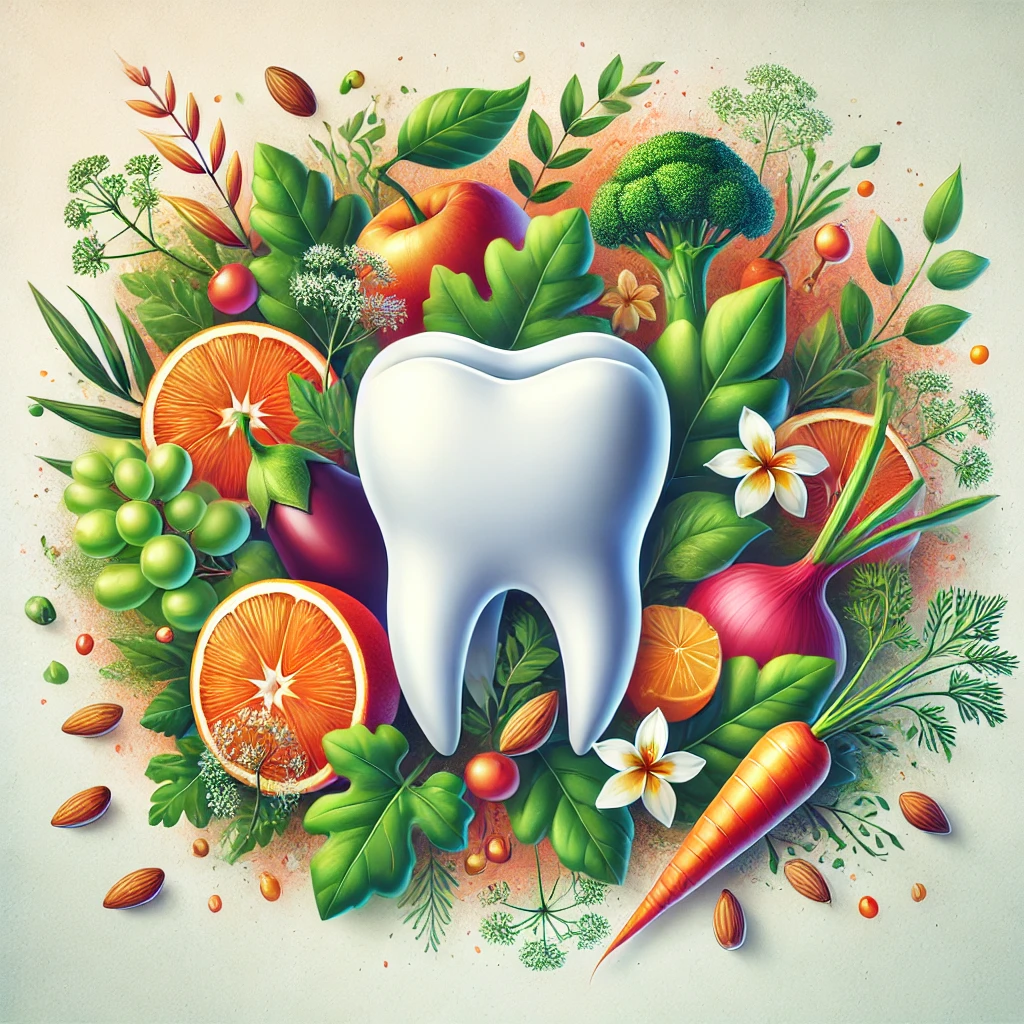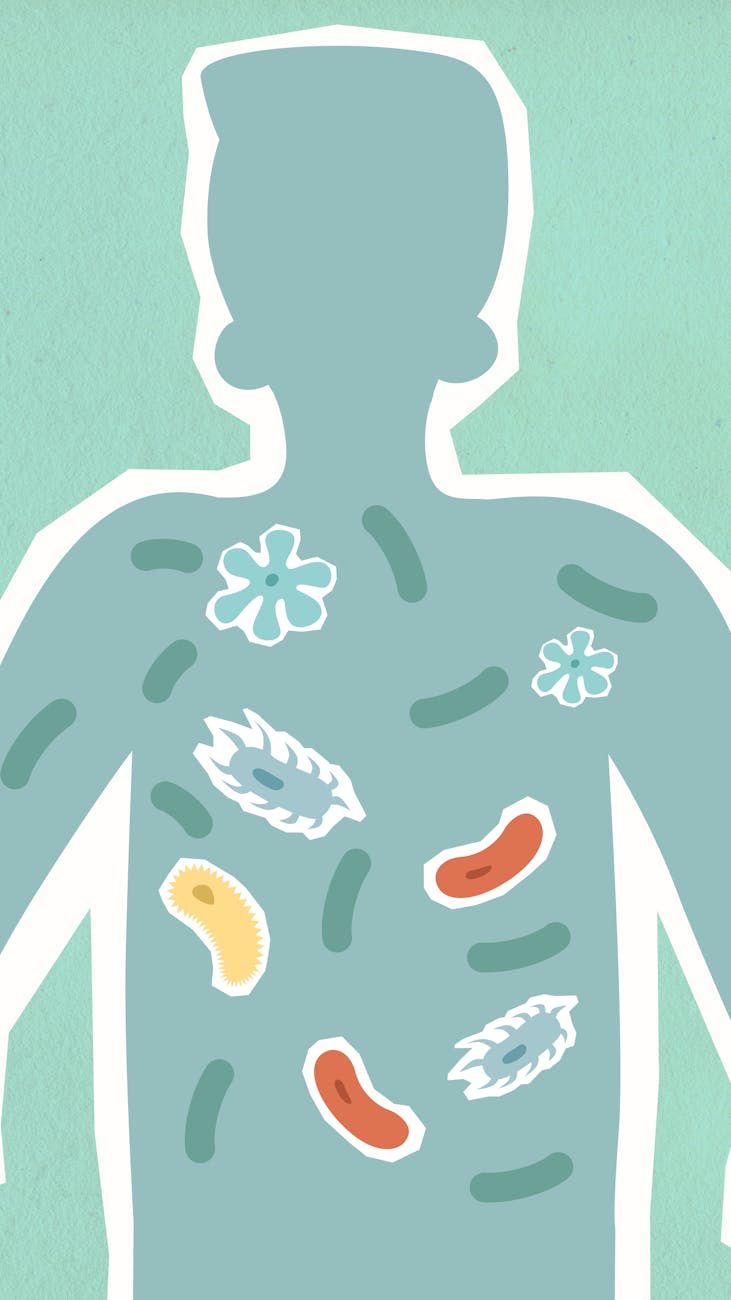Introduction
A radiant smile isn’t just about regular brushing and flossing – it’s deeply connected to the vitamins you consume daily. Your oral health serves as a window to your body’s nutritional status, with specific vitamins playing crucial roles in maintaining strong teeth and healthy gums.
Think of vitamins as the building blocks of your dental health. These essential nutrients work behind the scenes to:
- Strengthen tooth enamel
- Support gum tissue health
- Boost saliva production
- Fight oral infections
- Enhance calcium absorption
Key vitamins like A, C, D, and K form a powerful team that protects and nourishes your oral cavity. Each vitamin brings unique benefits – from maintaining your tooth enamel to supporting gum health and preventing dental issues.
Understanding these vital nutrients and incorporating them into your diet can transform your dental health. Let’s explore the essential vitamins that contribute to your perfect smile and learn how to harness their power for optimal oral wellness.
The Role of Vitamins in Oral Health
Vitamins are essential for maintaining strong teeth and healthy gums. These micronutrients activate specific cellular functions that protect your mouth from disease and decay. Your body’s ability to fight oral infections, produce protective saliva, and maintain strong tooth enamel depends on getting enough vitamins.
How Vitamins Impact Dental Health
A balanced diet rich in vitamins directly impacts your dental health through three key mechanisms:
- Cell Formation and Repair: Vitamins trigger the production of new cells that maintain gum tissue and tooth enamel
- Immune System Support: Specific vitamins enhance your body’s natural defense against oral bacteria and infections
- Mineral Absorption: Several vitamins help your body absorb and utilize minerals crucial for dental strength
Consequences of Nutritional Deficiencies
Nutritional deficiencies can lead to serious oral health problems:
- Bleeding gums
- Increased tooth sensitivity
- Delayed wound healing
- Weakened tooth enamel
- Higher risk of oral infections
The Connection Between Diet and Oral Health
Your dietary choices create a direct link between nutrition and oral health. Each vitamin plays a unique role in protecting your teeth and gums, working together to maintain your oral health ecosystem.
Essential Vitamins for a Healthy Smile
Vitamin A is a crucial nutrient for maintaining a bright and healthy smile. This powerful vitamin directly affects the growth and development of tooth enamel, which is the protective outer layer of your teeth. Getting enough Vitamin A in your diet helps strengthen your teeth and makes them more resistant to decay and damage.
Supports Saliva Production
Saliva production is an important part of your mouth’s natural defense system, and Vitamin A plays a key role in supporting this function. Healthy levels of saliva:
- Wash away harmful bacteria
- Break down food particles
- Neutralize acid-producing bacteria
- Remineralize tooth enamel
Fights Inflammation
Vitamin A also has anti-inflammatory properties that can benefit your oral health. These properties:
- Reduce gum inflammation
- Lower the risk of periodontal disease
- Speed up the healing process of mouth sores
- Support the regeneration of healthy oral tissue
Food Sources of Vitamin A
You can find plenty of Vitamin A in these foods:
- Sweet potatoes
- Carrots
- Spinach
- Egg yolks
- Beef liver
To maintain good oral health and support your body’s natural defenses against oral infections, aim for a daily intake of 700-900 micrograms of Vitamin A.
Vitamin C for Gums and Collagen Synthesis
Vitamin C is an essential nutrient for maintaining healthy gums. It plays a crucial role in keeping gum tissue strong and flexible. Your body needs this vitamin to produce collagen, which is a protein that forms the structure of your gums and other connective tissues.
What Happens When You Don’t Get Enough Vitamin C?
If you don’t get enough Vitamin C, it can lead to various problems with your gums, such as:
- Bleeding gums
- Loose teeth
- Weakening of gum tissue
- Slower healing of wounds
How Does Vitamin C Benefit Your Gums?
Your gums require sufficient amounts of Vitamin C to stay healthy and fight off infections caused by bacteria. This vitamin helps boost your body’s natural defense mechanisms in several ways:
- It supports the production of white blood cells, which are important for fighting off infections.
- It reduces inflammation in the gum tissue, helping to alleviate any swelling or redness.
- It promotes faster healing of the gums after any injuries or surgeries.
- It provides protection against periodontal disease, a serious condition that affects the supporting structures of your teeth.
Food Sources of Vitamin C
You can find plenty of Vitamin C in various foods, including:
- Citrus fruits like oranges and grapefruits
- Bell peppers, both sweet and spicy varieties
- Strawberries, which are not only delicious but also packed with nutrients
- Broccoli, a cruciferous vegetable known for its health benefits
- Kiwi fruit, small but mighty when it comes to Vitamin C content
Recommended Daily Intake
For adults, the recommended daily intake of Vitamin C ranges from 65-90mg. By regularly including foods rich in this vitamin in your diet, you can help maintain healthy gum tissue and reduce the risk of developing gum disease.
The Importance of Vitamin D for Dental Health
Vitamin D is an important nutrient for your dental health because it helps your body absorb calcium. This vitamin allows your body to use calcium effectively, which in turn strengthens your teeth and bones. Studies have shown that people with enough Vitamin D tend to have better dental health.
How Vitamin D Benefits Your Oral Health
Your saliva has natural substances that fight off harmful bacteria. Vitamin D is important for controlling these substances, making your mouth’s defense system even stronger. Research suggests that having enough Vitamin D can:
- Lower the chances of getting cavities
- Make your tooth enamel stronger
- Promote healthy gums
- Reduce inflammation in gum tissue
Consequences of Vitamin D Deficiency on Oral Health
Not getting enough Vitamin D can lead to several issues such as:
- Delayed tooth development in children
- Higher risk of cavities
- Weakened tooth structure
- Compromised immune response in oral tissues
Sources of Vitamin D
While your body can produce Vitamin D when exposed to sunlight, it’s also important to get it from your diet. Foods that are high in Vitamin D include fatty fish, egg yolks, and dairy products that have been fortified. Regular blood tests can help you keep track of your Vitamin D levels, ensuring that you are supporting your dental health adequately.
The Hidden Benefits of Vitamin K for Oral Well-being
Vitamin K is a vital nutrient that plays a significant role in maintaining good dental health. It activates specific proteins in the body that are responsible for ensuring proper calcium distribution in the bones and teeth. These proteins, known as osteocalcin and Matrix Gla protein, act as regulators of calcium, making sure it is deposited in the right places for strong dental structures.
How Vitamin K Benefits Your Teeth
Here are some ways in which Vitamin K contributes to the health of your teeth:
- Enhanced mineral density: Proper calcium distribution facilitated by Vitamin K helps strengthen the structure of your teeth.
- Reduced risk of tooth decay: Improved mineralization due to adequate Vitamin K levels makes your teeth more resistant to cavities.
- Better support from jaw bones: Stronger jaw bones, influenced by Vitamin K, provide a stable foundation for your teeth.
Food Sources of Vitamin K
You can find Vitamin K in various foods, including:
- Dark leafy greens like kale and spinach
- Brussels sprouts
- Fermented foods such as natto
The Importance of Vitamin K for Jaw Bone Health
Research suggests that sufficient intake of Vitamin K is beneficial for maintaining optimal bone density in the jaw. This is crucial because healthy jaw bones create a solid base for your teeth. The unique ability of this vitamin to direct calcium to areas where it is most needed further emphasizes its importance as a nutrient for preserving strong and healthy teeth throughout your life.
Calcium: The Unsung Hero for Oral Health
Calcium is a crucial nutrient for maintaining strong and healthy teeth. The enamel, which is the protective outer layer of your teeth, is made up of 95% calcium phosphate. This means that calcium is essential for keeping your teeth strong and protected.
How Calcium Benefits Your Teeth
Calcium does several important things for your dental health:
- It neutralizes harmful acids that can wear away tooth enamel.
- It helps repair and strengthen weakened areas of your teeth.
- It supports the density of your jawbone.
- It protects against tooth decay.
Dietary Sources of Calcium
You can increase your calcium intake by including these foods in your diet:
Dairy Products
- Milk
- Yogurt
- Cheese
- Cottage cheese
Plant-Based Options
- Kale
- Collard greens
- Broccoli
- Almonds
- Fortified plant milk
Recommended Daily Calcium Intake
The amount of calcium you need each day depends on your age:
- Adults (19-50 years): 1,000mg
- Adults (51+ years): 1,200mg
- Children (4-18 years): 1,300mg
The Importance of Vitamin D
Your body absorbs calcium best when it is combined with vitamin D. This combination creates a powerful duo for maintaining good dental health.
A Balanced Diet for Optimal Oral Health
A balanced diet rich in essential vitamins creates the foundation for a healthy smile. Here’s your guide to incorporating vitamin-rich foods into your daily meals:
Vitamin A Sources
- Sweet potatoes
- Carrots
- Spinach
- Egg yolks
- Red bell peppers
Vitamin C-Rich Foods
- Oranges and lemons
- Strawberries
- Kiwi
- Broccoli
- Brussels sprouts
Vitamin D Powerhouses
- Salmon
- Mackerel
- Tuna
- Egg yolks
- Fortified milk
Vitamin K Options
- Kale
- Collard greens
- Swiss chard
- Brussels sprouts
- Mustard greens
Creating a balanced plate means combining these vitamin-rich foods throughout your day. You can start with vitamin D-rich eggs for breakfast, add citrus fruits as snacks, include leafy greens in your lunch salad, and serve fatty fish for dinner. This approach ensures you receive a steady supply of smile-supporting nutrients your teeth and gums need.
Beyond Vitamins: Comprehensive Tips for Maintaining Oral Health
A healthy smile requires more than just proper nutrition. Regular dental check-ups every six months allow dentists to detect potential issues early and prevent serious complications. These professional cleanings remove stubborn plaque buildup that regular brushing can’t eliminate.
Your daily oral hygiene routine plays a crucial role in maintaining dental health:
- Brush teeth twice daily with fluoride toothpaste
- Use soft-bristled toothbrushes and replace them every 3-4 months
- Floss at least once daily to remove food particles between teeth
- Consider using an antiseptic mouthwash to reduce bacteria
Your lifestyle choices significantly impact your oral health:
- Stay hydrated: Drinking water helps wash away food debris and bacteria
- Limit acidic beverages: Sodas and sports drinks can erode tooth enamel
- Avoid tobacco: Smoking and chewing tobacco increase risks of gum disease and oral cancer
- Reduce alcohol consumption: Excessive alcohol can lead to dry mouth and increased cavity risk
- Protect your teeth: Wear mouthguards during sports activities
These practices work together with proper nutrition to create a comprehensive approach to dental care.
Conclusion
A radiant smile starts with proper nutrition. The essential vitamins discussed – A, C, D, K – work together to protect your teeth, strengthen your gums, and maintain optimal oral health. Each vitamin plays a unique role:
- Vitamin A supports healthy tooth enamel
- Vitamin C maintains strong gums
- Vitamin D enhances calcium absorption
- Vitamin K regulates bone density
You can achieve a healthier smile by incorporating vitamin-rich foods into your daily meals. Fresh fruits, vegetables, dairy products, and fatty fish provide the nutritional foundation your teeth and gums need. Remember – your smile reflects your overall health, and these essential vitamins are your natural allies in maintaining that bright, confident grin.
Shop 100 years of value with Botanic Choice providing high quality natural formulas, beauty, supplements and vitamins for Generations of health.













Is very importan to eat your vitamins for dental health! Vitamin A, C, D, and K help in many ways. They keep gums strong and teeth healthy. Remember to check foods like sweet potatoes and oranges for their benefits!